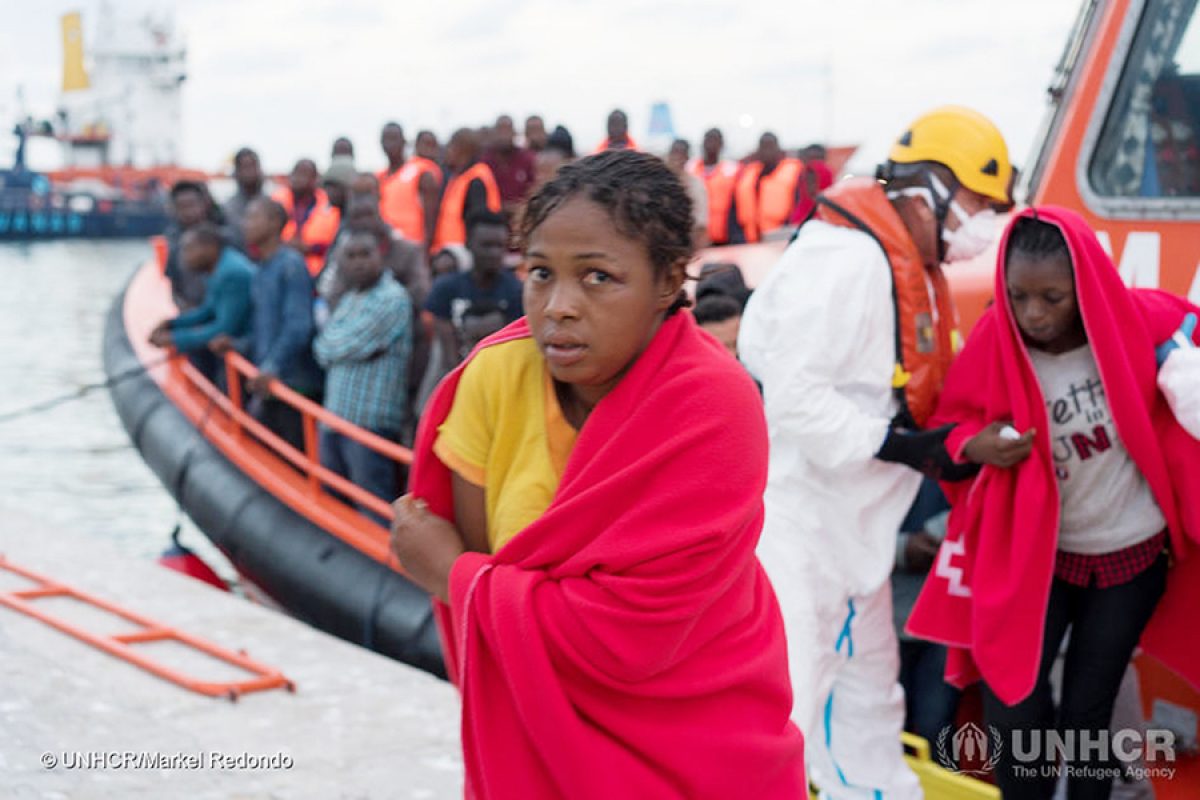European Bishops Criticize Indifference Towards Migrants Dead at Sea

We must recognize the dignity of migrants and our duty to welcome them, Italian Bishops say. And according to the head of the German Bishops Conference, that begins by saving their lives at sea.
“Every dead person at sea or in the desert or because they have suffered violence in detention is an offense against humanity,” said Cardinal Gualtiero Bassetti, President of the Italian Bishops’ Conference (CEI). The Cardinal was speaking in Rome at a meeting held on 4 April at the Centro Astalli, a Jesuit-run institution that assists migrants and refugees.
The same day in a separate press release, the Italian Bishops took a stand on the issue of migration to Italy and Europe. “Even if it implies risking unpopularity, the Church needs to actively contribute to a culture of welcome and integration and to move away from the indifference about the daily suffering of those who drown in the Mediterranean or are tortured in refugee [detention] camps in Libya,” says the press release.
“Migrants must be rescued and saved, not pushed away or blocked in unsafe third countries,” Cardinal Bassetti said at the Centro Astalli. “The influx has diminished, but who will take responsibility for those who die at sea? Sending them back to detention centers in Libya can also be a death sentence.”
Sea arrivals to Italy decreased by 80% in 2018, compared to the year before. At the same time, sea arrivals in Spain increased significantly. Despite a major overall drop in sea arrivals via the Mediterranean in 2018, the reported death rate remained high, with an estimated 2,275 people drowning during the crossing, equivalent to six deaths every day of the year.
At the same time, the Libyan Coast Guard increased their operations with the support of the European Union and brought back to the Libyan coast over 10,000 people attempting the crossing. Once back in Libya, migrants and refugees are detained in appalling conditions, reported by many sources as being inhumane.
Governments Cannot Be Blind to the Plight of Migrants
Also on 4 April, Cardinal Reinhard Marx, President of the German Bishops’ Conference, congratulated the captain of the sea rescue Mission Lifeline, Claus-Peter Reisch, and presented him with the prestigious Lew Kopelew Prize for Peace and Human Rights on 7 April.
Named after the German-Russian writer Lew Kopelew, the prize is awarded every year to honor people and organizations working to promote friendly relations among nations and human rights.
“European Governments cannot escape the obligation in ethical and international law to rescue people from drowning at sea. If they are not able to ensure sufficient rescue at sea operations, they should at least let civil society act in their place. At the moment, the opposite seems to be the case: sea rescue operations led by States have been reduced while non-state rescue remains blocked”, stated Cardinal Marx.
“Without the right to life, human rights would be practically meaningless,” he continued. And this is precisely why the commitment of civil society actors remains indispensable, “first and foremost, to save human lives, but also to challenge political leaders.”
Claus-Peter Reisch saved 234 people off the coast of Libya in June 2018. After an initial docking and disembarkation refusal from Malta, the ship “Lifeline” was eventually allowed in. Malta then initiated legal proceedings against him, bringing charges of ignoring Maltese orders and breaking international law. The case is still ongoing, with a final judgment expected on 14 May.